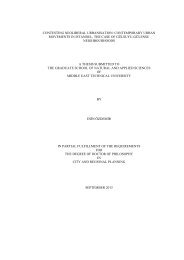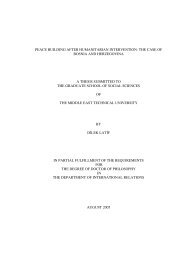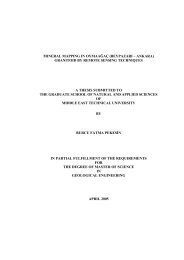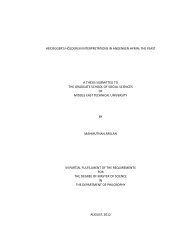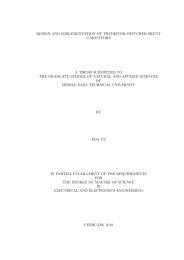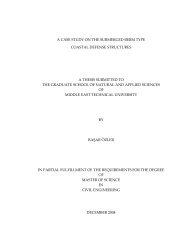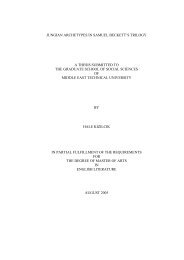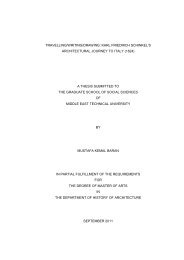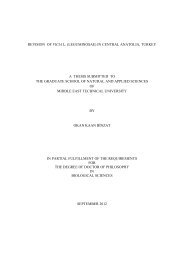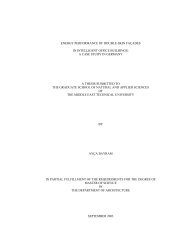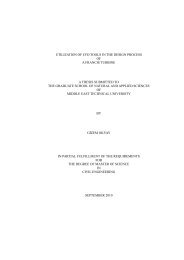View Original - Middle East Technical University
View Original - Middle East Technical University
View Original - Middle East Technical University
You also want an ePaper? Increase the reach of your titles
YUMPU automatically turns print PDFs into web optimized ePapers that Google loves.
value of this collective consumption(i.e. value of wages in money) is lower than the<br />
value of the collective social production, or the commodity values at a certain<br />
standard of production. In other words, the dispossession through wage contract is a<br />
basis for the dispossession of the workers in the form of surplus value production.<br />
Curiously however wage is an already validated part of the social value of labour-<br />
power; it more often than not stirs up an immediate demand in monetary terms on the<br />
commodity market of the time. As such workers collectively sell their labour-power<br />
but their wages are not under the fardel of further validation. One of the<br />
contradictions of the wage relation thus is not that wage is mundanely a substantial<br />
cost of production for a supposedly value-productive capital, but that surplus value is<br />
the not-yet-validated fragment of the social value of labour-power.<br />
Wage contract is basically about the ‘formal submission’ of labour to capital(i.e.<br />
‘forced solidarity’ on the part of the worker in waged-work and hence labour market)<br />
and not about its ‘real submission’. However, the latter is equally a part of the wage<br />
relation in regulationist analysis. Real submission resorts not to the increases in<br />
unpaid part of the working day through changes in the wage rate and terms(and<br />
extent) of employability but to appropriation of surplus value via an appropriation of<br />
collective techniques of production within the labour process. Although socialisation<br />
of productive techniques would increase productivity in all societies, under capitalist<br />
mode of production, this plans for a ‘socialisation-appropriation’ of such techniques<br />
which decorticates collective labour so that there is on the one side the bare industrial<br />
proletrian and on the other the whole conceptual stratum of work in the form of<br />
mechanisation.<br />
The Parisian analysis of the wage relation does not tritely or tautologically espouse<br />
that social labour would be truly wage labour under some wage system. It more<br />
precisely touches upon the fact that under the said wage system and the labour process<br />
over which capitalist have the utmost puissance, the production of commodities is<br />
strictly that of the production of abstract value. Wage relation in fact structures the<br />
terms of that capitalist puissance so long as it structures the very commodity form of<br />
46



